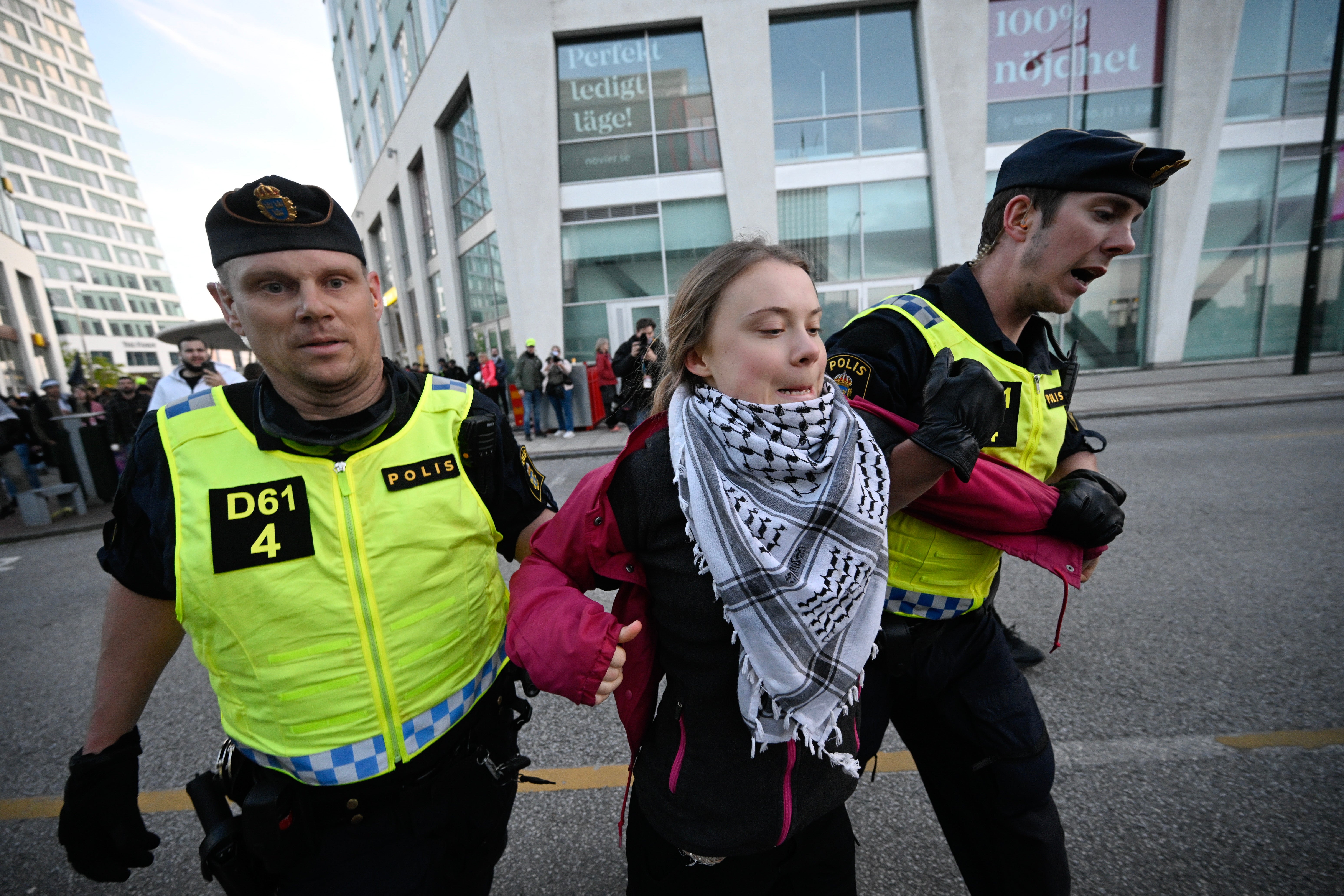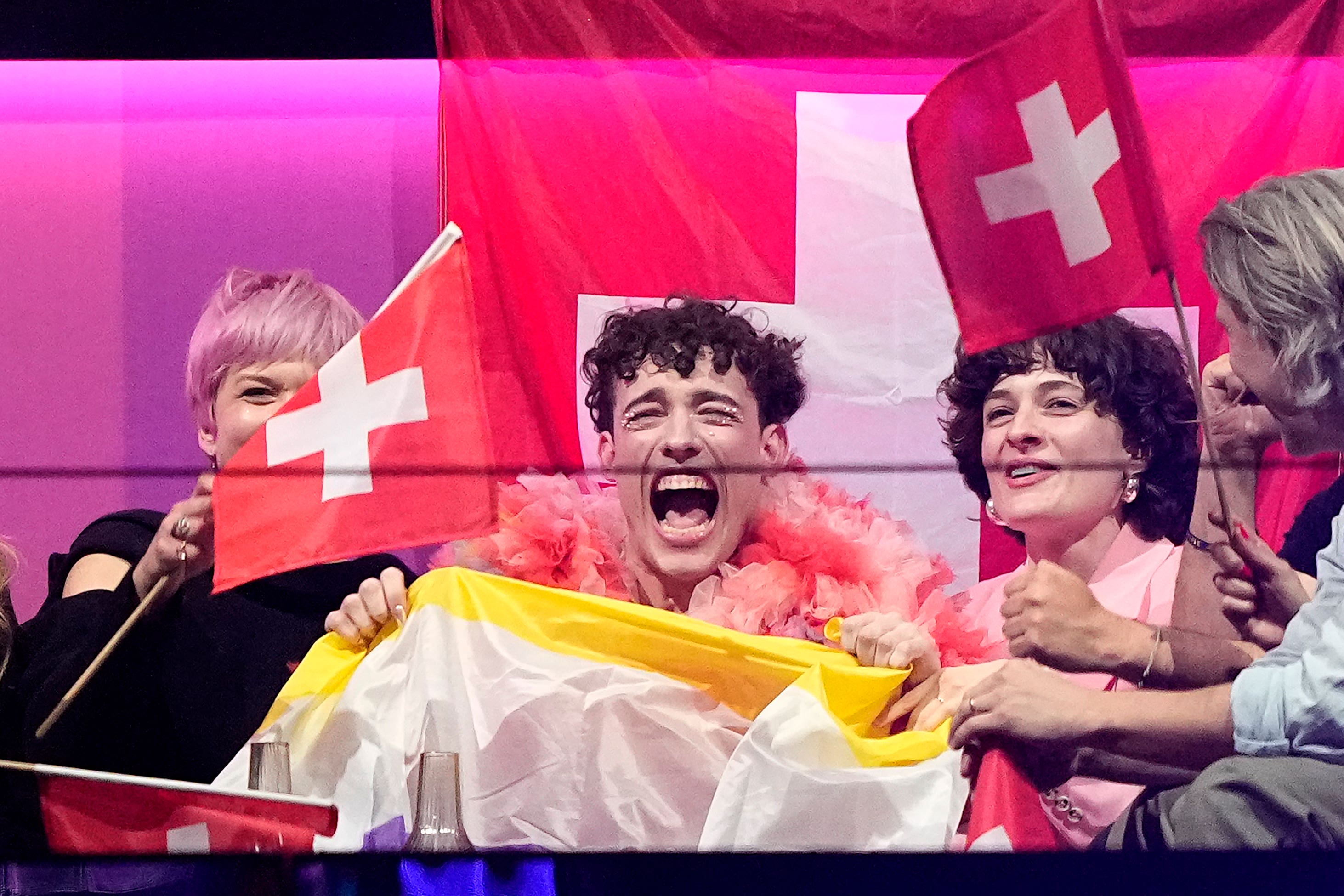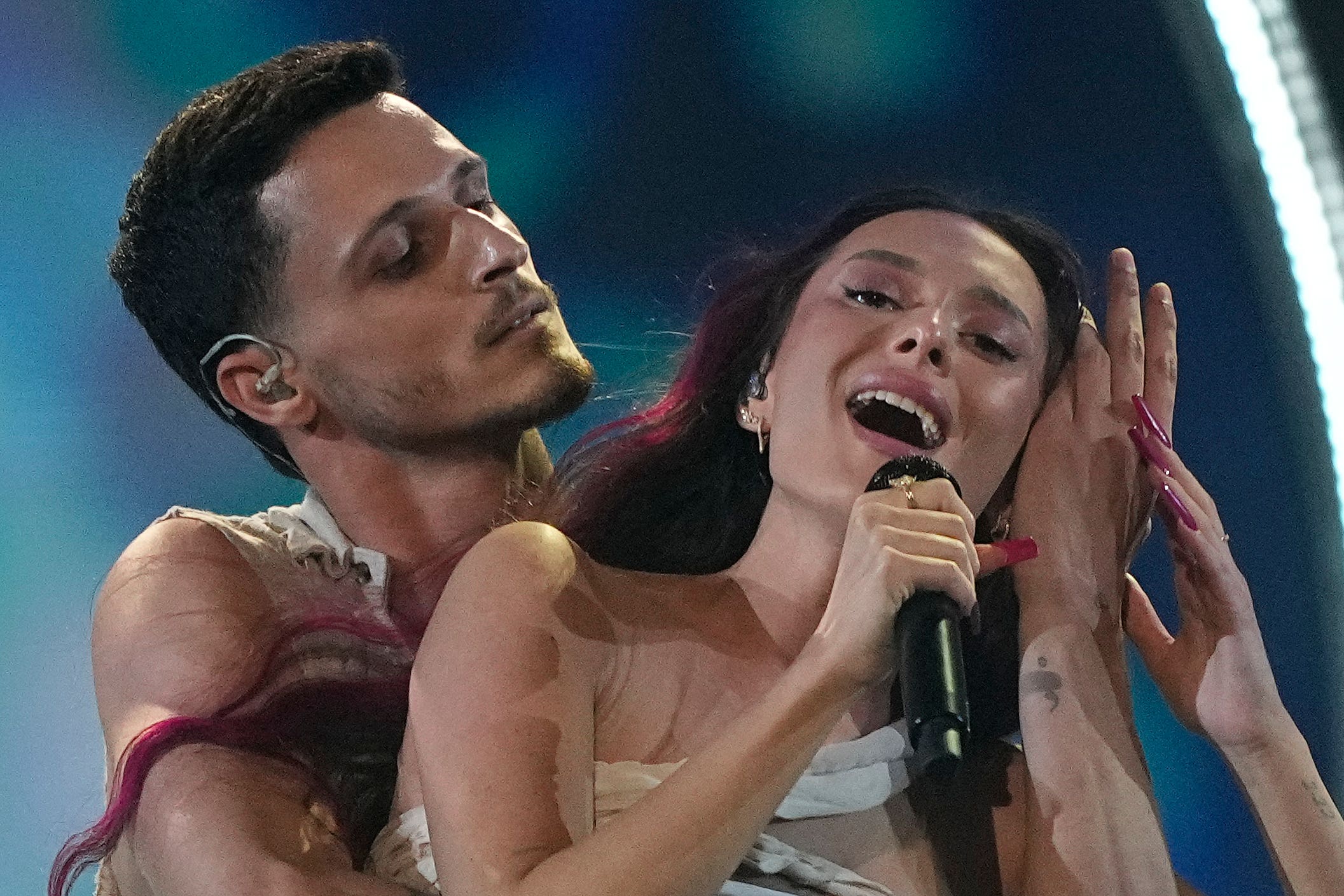Switzerland’s Nemo crowned Eurovision Song Contest 2024 champion – but UK’s Olly Alexander flops
Singer beat competition including delegates from Croatia, France, Portugal and Israel at the final in Sweden
Switzerland has been crowned the Eurovision Song Contest 2024 champion, winning thanks to singer Nemo and their song “The Code”.
The 24-year-old pop singer, who goes by they/them pronouns, won over both the jury and the public voters, after what looked like an initially close match with fellow favourites Croatia, France and Italy.
Their song “The Code”, which incorporated elements of opera, pop, rap and dance, was written by Benjamin Alasu, Lasse Midtsian Nymann, Linda Dale and Nemo. It riffed cleverly on the Habanera aria from Georges Bizet’s 1985 opera Carmen, and had drawn comparisons to the dramatic themes of the James Bond franchise.
Accepting the trophy from 2023 winner Loreen, Nemo thanked voters and said they “hoped this competition can continue to live up to its promise to stand for dignity and peace everywhere”, a pointed remark that seemed to nod to the controversy that has surrounded this year’s event.
The 68th Eurovision Song Contest was overshadowed by rumours of backstage rows, tears, a disqualified contestant and public protests over Israel’s participation in the grand final.
Outside the Malmö Arena in Sweden, where this year’s event was held, pro-Palestine activists were filmed chanting “shame on you” to fans as they entered the venue to watch the final take place. Climate activist Greta Thunberg was filmed being removed from the area by Swedish police, after joining the Stop Israel march while wearing a Keffiyeh scarf.

Inside the arena, the chaos continued to unfold mere hours before the final. Netherlands contestant Joost was disqualified over an “incident” that took place on Thursday 10 May, causing uproar among Eurovision fans and fury from Dutch broadcaster AVROTROS, who called the decision “disproportionate”.
Meanwhile, French contestant Slimane broke with protocol during the final dress rehearsal on Saturday afternoon, interrupting his performance to make an impassioned speech about peace. During the contest, other delegates defied organiser the European Broadcasting Union’s (EBU) rules about “political” statements, with Ireland’s Bambie Thug and Portugal’s iolanda among the artists calling for peace.

“United by music, yes, but with love for peace,” Slimane said, referring to Eurovision’s slogan “United By Music”, while iolanda declared “peace will prevail” following her performance at the live final. Slimane also repeated his message of “love and peace” as he concluded his redition of “Mon Amour”.
As the contest got underway, the atmosphere inside the arena seemed somewhat muted compared to previous years, as host Graham Norton appeared to struggle to find much to make light of. He noted the audible boos when the time came for Israel’s contestant Eden Golan to perform, which the EBU had earlier confirmed they would not censor.

Things perked up with a lively appearance from Spain’s married duo, Nebulossa, and again when favourite Bambie Thug performed their dark and hypnotic “Doomsday Blues”. There were other standout songs from eccentric Finnish contender Windows95Man, Ukraine’s Alyona Alyona and Jerry Heil, Italy’s Angelina Mango, and Croatia’s Baby Lasagna.
While the UK’s Olly Alexander ultimately ended up with a low score, he received support from viewers tuning in on social media and from the live audience, following his rendition of “Dizzy”.
Voting brought the tension surround Israel’s participating back to the forefront, with boos ringing out whenever Golan received scores from the jury or public votes, as well as when its jury announcer appeared on screen to hand out its douze points to Luxembourg.
After the jury votes had been counted, it was time for the public votes, where Nemo shot to the top of the scoreboard following high scores for Croatia, Italy, Ireland and France. Further boos were heard when it was revealed that Golan had received the biggest public vote.
Yet it wasn’t enough to beat Switzerland. Accepting the trophy from Loreen, Nemo thanked the voters and proceeded to once again perform their winning song, “The Code”, closing out a contest unlike any other Eurovision fans had experienced before.
Bookmark popover
Removed from bookmarks